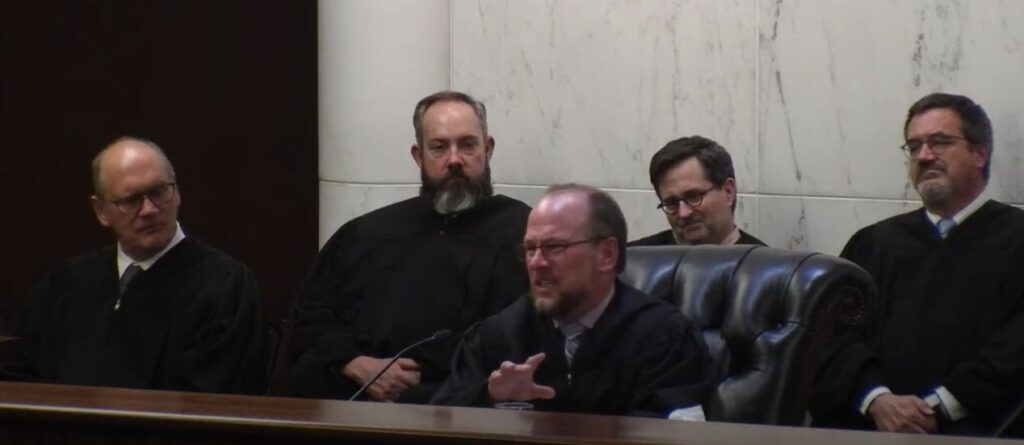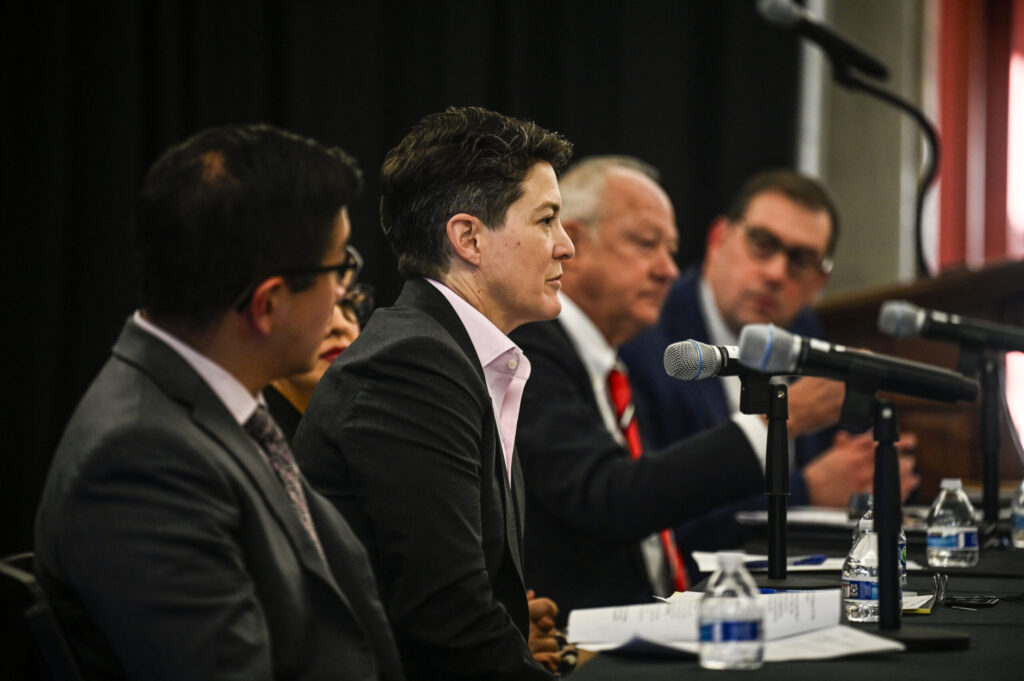Federal judge grants immunity to officers in Aurora arrest despite possible constitutional violation

Although police officers had not demonstrated why they had a right to be in a man’s Aurora home without a warrant and a jury could find a constitutional violation occurred, a federal judge said he had no choice but to give the officers immunity.
Law enforcement personnel from Denver and Aurora arrested Marquise Harris outside his apartment on Aug. 17, 2017. Amid conflicting information about whether the Denver Police Department was obtaining a warrant to search the residence, officers entered the apartment to ensure that no one else was inside and brought a sleeping toddler to his mother, Artesia Cabral.
Harris and Cabral sued the officers and the cities of Denver and Aurora, alleging an unlawful entry and search in violation of the Fourth Amendment, and an unconstitutional seizure of the child. The defendants maintained there were legitimate reasons for their “protective sweep” and entry.
Earlier this month, U.S. Magistrate Judge Michael E. Hegarty agreed to grant the officers qualified immunity for their actions. Qualified immunity is a judicial doctrine that shields government employees from civil liability unless they violate a legal right that prior courts have clearly established. Originally intended to protect officers who act in good faith, it often serves as a bar to those bringing civil rights claims against government actors.
Although Hegarty believed the allegations strongly suggested a constitutional violation, ultimately he found no prior court case that established, under similar circumstances, that law enforcement crossed a line with the sequence of actions they performed at Harris’ apartment.
“Defendants were presented with a situation which blended together aspects of a permissible warrantless entry and search, combining an arrest, securing property for a later search, and the presence of a child (presumably alone) inside. How defendants should have proceeded may not have been clear,” the magistrate judge wrote in a Dec. 8 order.
The plaintiffs and the defendants agreed on the narrative of what took place at Harris’ North Dallas Street residence that day. Harris was involved in a shooting in Denver, and the city’s police department obtained a warrant for his arrest. Denver asked Aurora for help in surveilling and apprehending Harris.
While officers gathered outside, they learned a small child was inside the home. Aurora’s Strategic Response and Tactics (SRT) Unit also received word that Harris was armed and dangerous.
At 12:30 p.m., Cabral left the home by vehicle. An hour later, officers saw Harris exiting his apartment and heading to a neighboring residence. They arrested him without incident.
Harris told police the 19-month-old child was sleeping in the apartment, but indicated officers should not retrieve him themselves.
“Ya’ll don’t have no search warrant to go in my house,” Harris said, according to body-worn camera footage. “[C]an you call [Cabral] and tell her to come over here because the baby’s in the house?”
Denver police told Aurora that a search warrant was in the works. A Denver officer requested Aurora conduct a protective sweep of the residence, meaning to enter the apartment and look for possible threats to the officers who would carry out the search warrant.
Just before entering, Aurora officers learned that Denver did not want to search the unit after all. However, another reversal occurred when Aurora’s SRT received a request to sweep the unit shortly afterward. Body-worm camera footage recorded officers registering their confusion about whether Denver was or was not preparing a search warrant for the apartment.
Cabral showed up around the time that officers decided to ultimately conduct the sweep. They did not allow her to enter, but one officer retrieved the baby and brought him to Cabral.
The stipulated facts from all parties also noted that officers were inside the home for approximately two minutes, that the entry occurred without a warrant, and that police never obtained a warrant – even after the entry.
“No legally recognizable exigent circumstances existed which would have permitted defendants’ warrantless entry of Plaintiffs’ residence,” Harris and Cabral argued in their lawsuit. “Before or during the August 17, 2017 encounter with plaintiffs, no defendant at any time had probable cause or reasonable suspicion, or any other legally valid basis, to seize plaintiffs’ infant child … without the consent of his parents.”
They also claimed that Denver and Aurora failed to properly train and supervise their officers about how to conduct lawful searches and seizures of residences.
The defendants countered that the protective sweep did not rise to the level of a search, and that courts have upheld the notion that officers can use sweeps to secure a crime scene while awaiting a warrant.
After reviewing the facts of the case, Hegarty was skeptical that the Aurora officers’ entry complied with the Fourth Amendment. Harris’ arrest took place outside of his apartment, the magistrate judge noted, meaning the sweep of the home was not integral to taking him into custody.
Even though the child was less than two years old, that fact alone did not empower Aurora’s officers to enter on a belief that there was a significant safety risk if they did not act.
“They did not enter the home immediately upon learning that [the child] was alone inside but rather on DPD’s instruction,” he wrote.
In response to the defendants’ argument that officers worried about whether a dangerous person was in the apartment with the child, Hegarty did not believe that fear automatically justified a sweep of the home. They had, after all, been surveilling the apartment in anticipation of arresting Harris, and presumably knew who was inside.
“[T]he stipulation does not suggest that any lesser approach was tried, or even considered,” he wrote. “The stipulation leaves open the possibility that defendants instead may have executed the protective sweep that they already had planned before DPD was able to apprehend Harris outside the dwelling after his unanticipated exit to visit a neighbor.”
Because it was unclear whether the defendants actually had a reasonable suspicion that a dangerous person was in the apartment with the toddler, Hegarty concluded that a jury could find the officers performed an unconstitutional search and seizure.
Nonetheless, neither the U.S. Supreme Court nor the federal appeals court with jurisdiction over Colorado had deemed such actions a clear violation of the Fourth Amendment at the time of Harris’ arrest. Hegarty, therefore, granted the officers immunity.
Attorneys for Harris and Cabral did not respond to a request for comment about the decision.
The case is Harris et al. v. City and County of Denver et al.














